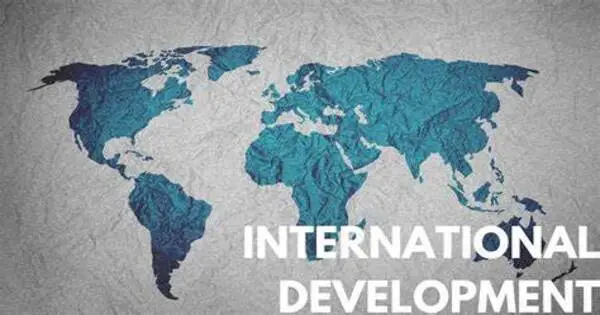International development, often known as global development, refers to the idea that cultures and countries have varying levels of economic or human development on a worldwide scale. It is a multidisciplinary discipline that aims to improve people’s economic, social, and political well-being in countries all over the world. It serves as the foundation for international classifications such as developed country, developing country, and least developed country, as well as a field of activity and study that participates with international development processes in many ways.
It refers to a wide range of actions, policies, and programs aimed at eliminating poverty, encouraging economic growth, improving human development, and supporting stability in developing countries. There are, however, numerous schools of thought and norms regarding the precise characteristics that constitute a country’s “development.”
Here are some key aspects of international development:
- Poverty Alleviation: One of the primary purposes of international development is to alleviate poverty and enhance people’s living situations in low and middle-income countries. This involves measures to ensure that people have access to basic essentials including clean water, healthcare, education, and food.
- Economic Development: It frequently entails measures to boost economic growth through investment, trade, infrastructure development, and the creation of long-term livelihoods. This can be accomplished through initiatives such as microfinance, entrepreneurship assistance, and job training.
- Healthcare: Improving healthcare systems and increasing access to basic healthcare services are critical components of international development. Initiatives may include illness prevention, healthcare infrastructure development, and professional capacity building.
- Education: Education is seen as a key driver of development. International efforts focus on increasing access to quality education, reducing illiteracy, and improving educational outcomes, particularly for girls and marginalized groups.
- Gender Equality: Promoting gender equality is a crucial component of international development. Efforts include addressing gender-based violence, promoting women’s economic empowerment, and ensuring women’s participation in decision-making processes.
- Environmental Sustainability: The necessity of environmental and natural resource protection is emphasized in sustainable development. To address climate change and environmental deterioration, efforts include sustainable agriculture, renewable energy, and conservation measures.
- Infrastructure Development: Infrastructure development and improvement, such as transportation, electricity, and communication infrastructures, are critical for economic development and poverty alleviation.
Official development assistance (ODA) from donor countries, private sector investment, philanthropic initiatives, and the activities of non-governmental organizations (NGOs) all contribute to international development. Various international agencies, such as the United Nations, the World Bank, and regional development banks, play critical roles in defining and implementing development policies and initiatives.
The area of international development is always expanding as new challenges and possibilities emerge on the global arena. To solve complex, linked issues in pursuit of a more fair and prosperous world, a multidisciplinary strategy that draws on expertise from economics, sociology, political science, public health, and other disciplines is required.
















